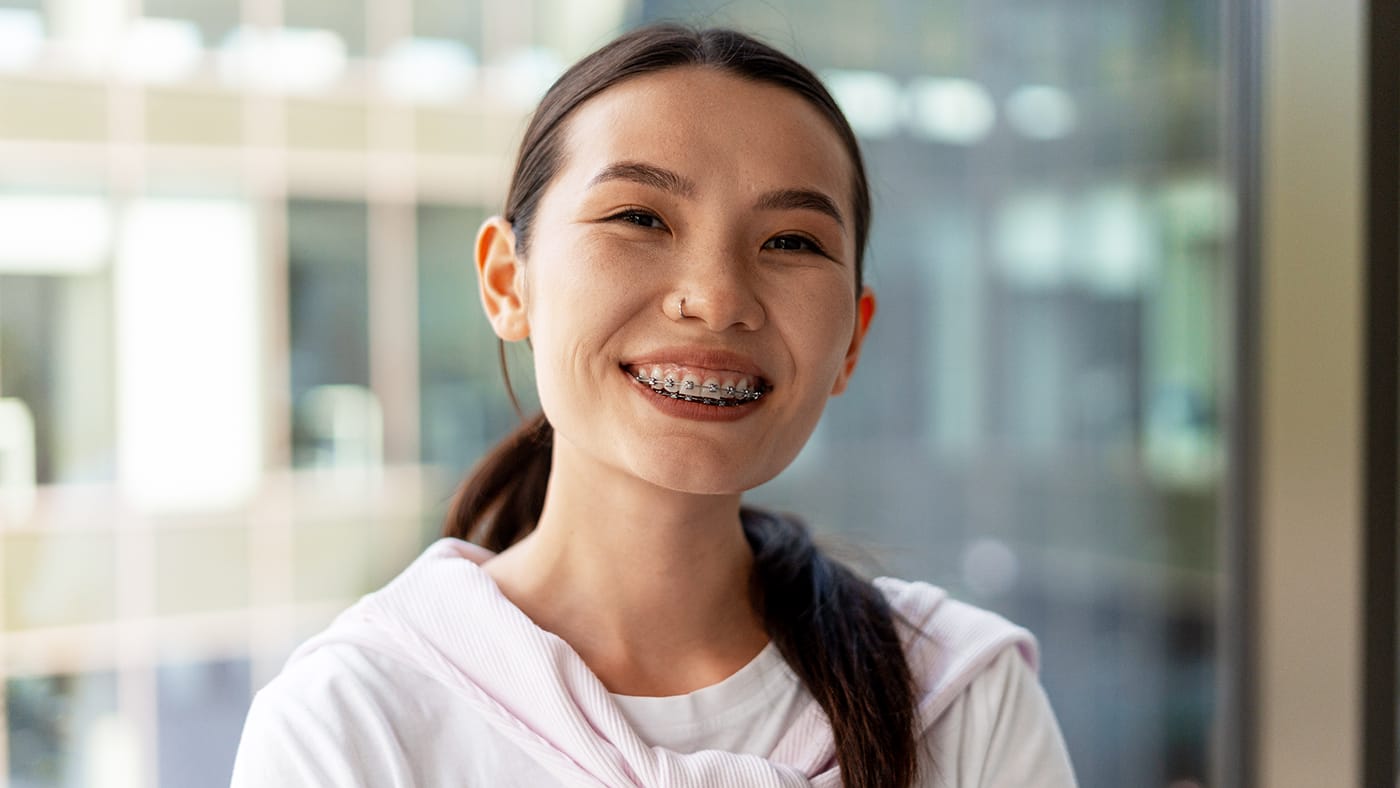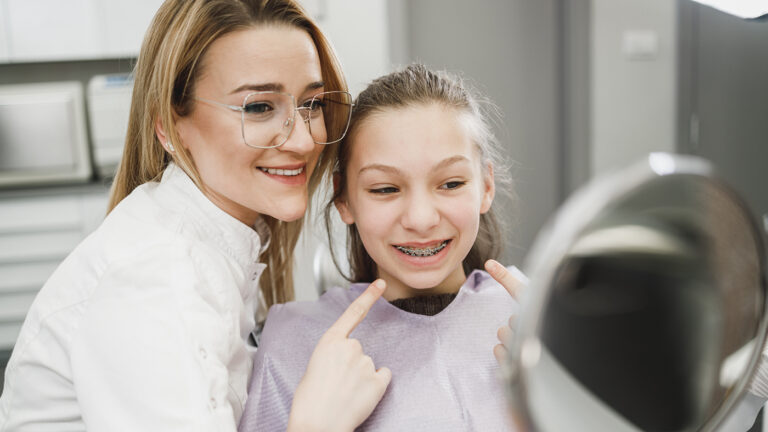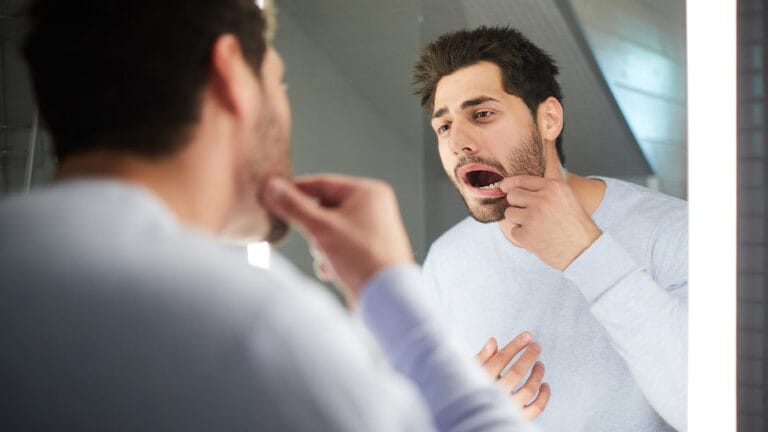Ever notice how a confident smile can light up a whole room? For many adults, getting braces or Invisalign isn’t just about straightening teeth; it’s about unlocking the kind of confidence that comes with every smile. Whether you didn’t have orthodontic treatment as a kid or your teeth have shifted over time, braces or Invisalign can do more than give you a picture-perfect smile. They can boost your self-esteem, improve oral health, and even make daily life easier. Let’s talk about why more and more adults are saying “yes” to braces or Invisalign and the big difference they can make in how you look, feel, and live.
How do I know if I need braces or Invisalign as an adult?
Adults may want to get braces or Invisalign for aesthetic reasons, dental health reasons, or a combination of both. In addition to giving you a straighter, more attractive smile, braces or Invisalign can also improve your ability to bite, chew, and speak. They can also reduce the risk of tooth decay and gum disease throughout your life.
Overcrowding
When there’s not enough space in the jaw to accommodate the teeth, they are forced to overlap, causing crooked teeth and overcrowding. Misaligned teeth are more difficult to keep clean, and they can cause uneven wear, which increases the risk of tooth decay and gum disease.
Overbite
In a typical mouth, the upper teeth hang over the lower teeth just slightly, so that most of the bottom teeth are still visible. The term overbite is often misunderstood to mean how far the upper teeth are ahead of the lower teeth (orthodontists actually call this overjet). When orthodontists talk about an overbite, we are talking about how much the upper teeth hang over or overlap the lower teeth. When the upper teeth overlap the lower teeth significantly, we call this a deep bite. This can cause difficulty eating and speaking as well as uneven tooth wear.
Underbite
Basically, the opposite of an overbite, the lower teeth protrude ahead of the upper teeth. An underbite is less common, but it presents many of the same challenges to eating, speaking, and dental health.
Open Bite
In a typical bite, the teeth come together neatly, resting on top of one another when the mouth is closed. An open bite occurs when a gap remains between the upper and lower teeth, even when the mouth is closed, causing difficulty with biting, chewing, and speaking.
How do braces or Invisalign improve your smile and confidence?
When your teeth are aligned and your smile feels natural, you’re more likely to show it off without hesitation. That boost in self-assurance can carry over into every part of life, whether you’re speaking in a meeting, laughing with friends, or posing for photos. Knowing your smile looks its best helps you feel your best. While braces or Invisalign can improve your confidence by straightening your teeth and giving you a more idealized smile, there are other indirect benefits, too!
Easier Cleaning
Nobody really likes brushing and flossing, but when teeth are crooked or crowded, cleaning your teeth can be even more difficult. You may have hard-to-reach spaces that are likely to develop plaque buildup, cavities, gum disease, or tooth decay. None of that is likely to leave you feeling confident and smiling. Straightening your teeth means they’re easier to keep fresh and clean, leaving you free to smile more confidently.
Improved Speech
Misaligned teeth can cause trouble when speaking. Orthodontic treatment realigns the teeth and jaws, potentially clearing up speaking hurdles. The ability to speak more clearly and confidently is a confidence booster, especially when interacting with others in work or school settings, during presentations, on first dates, in job interviews, and in other high-stakes situations.
Better Breathing
A narrow dental arch and misaligned teeth can affect the airway. Widening the dental arch and aligning the teeth creates space for your tongue, allowing the jaw to be in a more favorable position. Braces can help improve snoring, reduce mouth breathing, aid in managing sleep apnea, and enhance sleep quality by opening the airway.
Enhanced Digestion
Misalignments can cause trouble biting and chewing, which can affect your overall digestion and even lead to malnutrition. Those problems can be improved following orthodontic treatment.
First Impressions
Your smile is one of the first things people notice about you. Orthodontic concerns often leave people hiding their smiles, making them appear closed off and withdrawn. Orthodontic treatment provides you with the best possible smile for a lasting, positive first impression.
Achievement
Wearing braces is a significant undertaking and a substantial commitment. You wear braces for a year or two, maybe longer, and it’s not something you can take a break from once you’ve started. Completing treatment is a significant accomplishment that leaves many patients with a newfound confidence they can carry into the rest of their lives.
What do I need to know about getting braces or Invisalign as an adult?
Whether you’re ready to correct something that’s bothered you since you were a child or you’ve noticed some recent shifting with age, braces or Invisalign can give you the smile you’ve been looking for. It’s a short-term investment (even if it doesn’t always feel that way) in your dental health and happiness.
Fortunately, patients have more options now than ever. You can get traditional braces with metal brackets and archwires. Still, many adult patients opt for ceramic braces or transparent aligners, such as Invisalign, which are more subtle and less noticeable. Not only are they stealthy, but you can be removed for eating and cleaning, which avoids some of the pitfalls of conventional brackets and wires.
Whether you’re wondering about the pros and cons of clear aligners, how long you might need to wear braces, or if it’s worth getting braces as an adult, our orthodontic specialists can help. We can determine if braces or Invisalign are right for you, discuss treatment options, address any questions you may have, and guide you through the entire process. With offices in South Jordan, West Jordan, Riverton, Bluffdale, and Stansbury Park, convenient orthodontic care is available near you!




